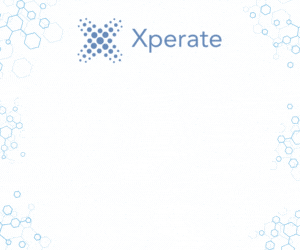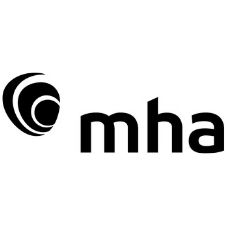MHA MacIntyre Hudson professional practices: Covid-19 – Time for a change?
One of the defining aspects of the Covid-19 crisis has been the speed with which the economy moved from apparent health to seizure in many sectors, on both the supply and demand side. The actions of the UK Government supporting business and employment appears to have been met with general support, however, it would seem clear that the financial performance of many professional practices will be significantly impacted.
Adverse shifts in profitability have always been an indicator as to whether a business should consider changing its accounting date and this applies in the case of a professional practice, whether it operates as a partnership/LLP on the one hand or through a limited company on the other. This is amplified given the relatively common use in professional practices of 31st December, 31st March and 30th April year ends, where the last set of accounts may not show the impact of covid-19 on the firm’s profitability.
The tax consequences of changing accounting date are very different depending upon the structure: income tax rules relating to changes in accounting date are much more nuanced than the relatively mechanical rules that apply for corporation tax purposes, however, there are potential opportunities, particularly where profitability in the period since lockdown on 23rd March 2020 has been severely impacted. It is widely expected that the UK will enter a deep recession. Much interest will focus on the shape of the eventual recovery: will any recession be V, U or L -shaped? This might well mean the consideration of changing accounting date becomes a matter of ongoing review over forthcoming months rather than an immediate decision.
In setting out the consequences of changing accounting date, this note does not consider the various Covid-19 support packages offered by Government and more general negotiated time-to-pay arrangements.
Practices operating as a limited company
If one looks at the accounting reference dates selected by companies in the UK, by far the most common period of accounts selected is 31st December or 31st March. The longest period of accounts permitted by company law is a period of 18 months, with a provision that generally a company can extend its period of accounts only once in a five-year period. A company, however, may at any time produce accounts for a short period.
Upon the basis that the period from the middle of March 2020 will have been a period of significant business interruption, consideration should be given to:
Either extending a period of accounts, so as to bring into account the impact of the business interruption, for example, taking a normal accounting date of 31st March, extending this period of accounts to say 30th September; or
Producing a short period of accounts where there are losses resulting from business interruption, so that they are available for carry back to the previous accounting period at the earliest possible stage.
Long periods of account
The general approach from a corporation tax viewpoint to a long period of account is for the period of account to be broken down into two accounting periods; the first being the first 12 months of the period of account, the second being the remaining period of account to the new balance sheet date. Profits are generally apportioned between the two accounting periods on a time apportionment basis. Whilst time apportionment is the default position, apportionment may be undertaken on a transaction undertaken basis, however, HMRC guidance suggests that this should only be undertaken where there are few identifiable transactions. Therefore, one would expect certainly in the case of most trading and property investment companies, that time apportionment would be the default basis of ascertaining profits for each accounting period.
Taking the example of a normal accounting reference date of 31st March and extending this to 30th September, the impact of time apportionment will be to “spread back” the negative impact in the period 1st April 2020 to 30th September 2020 and therefore reduce profits chargeable to corporation tax for the year to 31st March 2020 and therefore reduce the tax due.
Short period of account
Where the impact of business interruption has been to move a practice into losses, the general rule is that trading losses can be carried back 12 months. Particularly where using the example of 31st March, the period to 30th September is particularly impacted with a subsequent return to profitability, crystallising and establishing the loss will be a basis upon which to seek relief so as to reduce corporation tax that would usually be payable for the period to 31st March 2020 on 1st January 2021.
Practices operating as a sole practitioner/partnership/LLP
As noted, income tax rules are more nuanced than those for corporation tax. The attraction of whether and when a change of accounting date is considered will depend upon whether the business currently draws it accounts up to a date that falls early in the tax year, 30th April for example or late in the tax year, 31st March for example. Generally, a business that is within the charge to income tax is permitted to change its accounting date once in any five-year period or more frequently, where a business case can be shown.
Early tax year, year ends
If one takes a practice usually drawing up its accounts to 30th April annually, it is quite conceivable that the financial results for the year to 30th April 2020 will not have been materially impacted by Covid-19. Should the accounting reference date remain unchanged, the accounts for the year to 30th April 2020 will form the basis of tax liabilities for the year to 5th April 2021.
Should the impact of the business interruption extend, consideration should be given to the impact of drawing up accounts for eleven months to 31st March 2021. If the impacted period is shorter, consideration should be given to drawing up accounts to cover that period or extending the 30th April year end to cover that period (the maximum permitted period of accounts for income tax being 18 months).
Where a change of accounting date results in the accounting date ending later in the tax year than previously (for example accounts are prepared for a long period of 18 months to 31st October 2020 or accounts are prepared for the year to 30th April 2020 and then for a short period to 31st March 2021), the basis of assessment of profits for the 2020/21 tax year will be, in the case of an extended period of accounts, the profits for that extended period (in the example above, the profits for the 18 month period of account) or in the case of a short period of accounts aggregate profits for the two periods of account ending in the year (in the example, the aggregate of the 30th April and 31st March figures). The potential attraction of this route is where there are substantial overlap profits available to partners: these will be released and deducted from taxable profits. Taking again, the examples above, for a long period to 31st October, 6/11ths of each partner’s overlap relief would be deducted from taxable profits and for a short period to 31st March 2021, all of the overlap relief would be released and deducted from taxable profits.
Late tax year, year ends
Again, for the purposes of this note, it is assumed that profitability for a year to 31st March 2020 would not be materially impacted by the Coronavirus outbreak, however, the impact will fall in what would be the normal accounting year to 31st March 2021.
The accounts for 31st March 2020 will form the basis of tax due for the year to 5th April 2020. Where profitability has been stable or increasing but then has been seriously impacted, whereas extension of accounting periods or drawing up of a short period of accounts is potentially attractive for early tax year year ends, this will not be the case for late tax year year ends, such as 31st March: either extending a 31st March accounting date to say 30th September or drawing up a short period of accounts to 30th September may well produce adverse results:
On an extension from 31st March 2020 to 30th September 2020, profits for the 2019/20 tax year would be based upon a constructed period of 12 months to 30th September 2019 i.e. half of the profits for the year to 31st March 2019 and one-third of the profits for the long period to 30th September 2020 would be taxed. The 2020/21 tax year would be taxed by reference to two-thirds of the profits to 30th September 2020. Overlap profits would be produced being the profits for the half year to 31st March 2019 that had been taxed both for the 2018/19 and 2019/20 tax years.
On setting a short period of 6 months to 30th September 2020, 2019/20 would be taxed by reference to the year to 31st March 2020 and 2020/21 would be taxed by reference to a constructed year to 30th September 2020 i.e. the profits for the six month period together with one half of the profits for the year to 31st March 2020. This period of six months to 31st March 2020 would produce overlap profits.
The point in time at which a late tax year year end practice should consider a change of accounting date is at the point at which a bounce-back in profitability is felt. Whenever there is a change of accounting date by a late tax year year end practice, historic profits will be double taxed and become overlap relief. Where those double taxed profits are less than the profit that would otherwise accrue had accounts been drawn up for a twelve-month period, tax cashflow benefits will result.
Practical points
Of course, the devil is in the detail. Each practice will encounter its own experience of the impact of Covid-19. The notes above are intended to illustrate some of the principles by reference to which tax may be mitigated by selecting an alternative accounting reference date. As noted, we are currently in a set of circumstances where this is something to be monitored, rather than, in most cases, immediate decisions made.
Impact on Accountants Report / SRA
It is important for law firms to remember that the year or period end for when the Accountants Report needs to be prepared may not be the same as the statutory one.
For SRA purposes an accounting period may be for a period of less than twelve months or for more than twelve months up to a maximum of eighteen months. Just because the statutory year end has changed, does not mean that the period for reporting on client money needs to, although the flexibility exists to do so if you wish.
The SRA must be notified of a change in the reporting period and the deadline for completion is still six months after the period end. The start of the accounting period for new firms is the date they first begin to hold client monies, which may differ from the incorporation date of a company or LLP.



